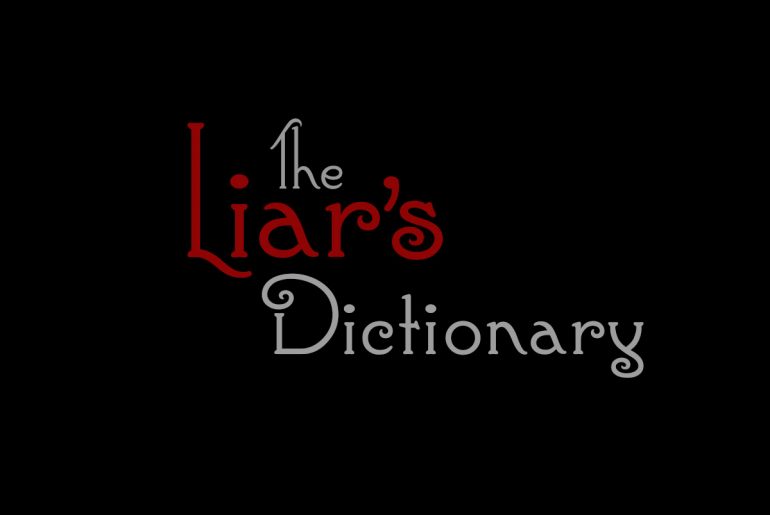Brentano’s Bookstore. Westlake Center. Seattle. Mid-Nineties.
I was up front, stocking the poetry section, momentarily resisting the urge to crack open some Robinson Jeffers or Theodore Roethke and read a few lines. A man came through the doors, making a beeline for me, announcing: “I need a book about space.” He was in his sixties. He had been wearing a hat as recently as ten minutes before. I guessed his wife was shopping in the mall, and instead of spending his purgatorial sentence parked on one of the mall benches, he decided to put his time to use. I suspected it was his first time in a bookstore in years, maybe ever.
Books on Space. I’m on it. I am always willing to channel my inner nine-year-old and dig through the science section. I grew up in the sixties when space was the current frontier.
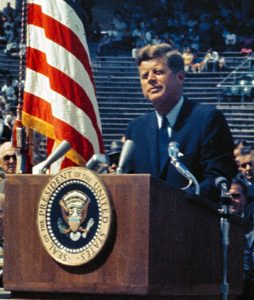
In 1961, John F. Kennedy got up and got behind the space program. Inspired by cold war competition—the Soviet Union had launched Sputnik in 1957, and sent Yuri Gargarin once around the planet in 1961—Kennedy spoke powerfully, intelligently, persuasively about flying Americans to and from the moon before the end of the decade. In his 1962 speech at Rice University he said, “We choose to go to the moon. We choose to go to the moon in this decade and do the other things, not because they are easy, but because they are hard, because that goal will serve to organize and measure the best of our energies and skills, because that challenge is one that we are willing to accept, one we are unwilling to postpone, and one which we intend to win, and the others, too.” Project Gemini and the Apollo Program were soon all over the news.
The cultural notions of space and future were significantly recalibrated in that moment.
Rocketships were out. Rockets were in. The 1950s style space sit-com Lost in Space gave way to the tech savvy Star Trek, its set infused with updated realism, its plots frequently dealing with the ethics of space exploration. Stanley Kubrick’s 2001: A Space Odyssey was closer to us in time than Star Trek. Its special effects, its themes of evolution, existentialism, and artificial intelligence are so well done, that when the millennium approached, we were all disappointed by the discrepancy.
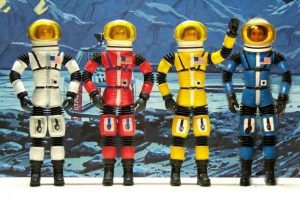
The toy aisles filled up with rockets and astronauts. The Major Matt Mason action figures, spacesuits, rockets, and rovers were designed based on actual NASA concepts. And finally, at the end of the decade, as promised, we had the moon landings.
We watched Apollo 11 launch and land in the summer of 1969. 94% of the homes with television sets tuned in. Later landings would be shown in schools. In my classroom, a huge black and white television set was wheeled in on a cart. This was a big deal at the time—a lot of our multimedia experiences in school still involved a Filmstrip Projector—a combination slide-projector/record player that beeped when it was time for the AV assistant to advance the strip.
We sat at our desks, watched them walk on the moon, and collect rock samples. It didn’t matter that the images were low-resolution, and high contrast, or that the astronauts were moving in what seemed like slow-motion. It was exciting, memorable, and cool—and certainly more interesting than the usual curriculum.
The magazine stands filled with beautiful, powerful, color cover photos. The intense blue of the Earth set off by the rich black of space. After seeing the Earthrise photograph taken by Apollo 8 astronaut Bill Anders, the poet Archibald MacLeish wrote:
To see the earth as we now see it, small and blue and beautiful in that eternal silence where it floats, is to see ourselves as riders on the earth together, brothers on that bright loveliness in the unending night—brothers who see now they are truly brothers.
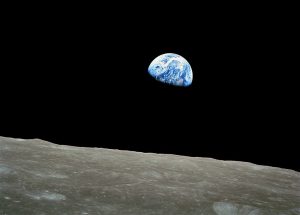
As I walked the guy back to the science section, he began getting more specific about what he was looking for. “I need a book about the moon,” he said. Then, getting more animated, his brain switching gears, he said, “You know how they showed the moon landings on TV? Well, I was thinking—there’s no air in space. So how could we hear it? How could we hear any of it? At this moment, he somehow became both solemn and excited. “Sound waves need air to travel in! In space no one can hear you scream—right?”
A bit stunned, I showed him some books while he elaborated on his theory. I gave a go at explaining that television transmissions, both video and audio, were sent via electromagnetic waves, which did not require air as a medium, but what he heard me say was: “blahblahblah.”
I actually met the astronaut Jim Lovell in that very bookstore. He had recently released Lost Moon, the book that was the basis for the Apollo 13 movie—he was the astronaut portrayed by Tom Hanks. He was thoughtful and friendly and did not strike me as a man harboring a gigantic secret.
Space-Book guy continued, adding the cherry to the top of his conspiracy cake: “That’s why they went after OJ—because he made that movie.”
He was referring to Capricorn One, the movie about the government faking a Mars landing, starring OJ Simpson. The movie’s other stars—Elliot Gould, James Brolin, Sam Waterston, Brenda Vaccaro, Hal Holbrook, and Telly Savalas—seem to have been spared persecution for their parts in this cinematic revelation of government conspiracy.
I wished him good luck, and walked toward the front of the store, fully intending to pull out the Yeats I had just shelved, and read The Second Coming five or six times as a tonic.
Epilogue
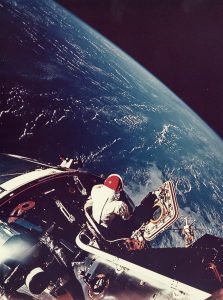
Russell Schweickart
Lunar Module Pilot, Apollo 9
His thoughts on orbiting the Earth
March 1969
“But up there, you go around every hour and a half, time after time after time. You wake up usually in the mornings, over the Middle East and over North Africa. As you eat breakfast you look out the window and there’s the Mediterranean area, Greece and Rome and North Africa and the Sinai, that whole area. . . . And you identify with Houston and then you identify with Los Angeles and Phoenix and New Orleans. And the next thing you recognize in yourself is that you’re identifying with North Africa. You look forward to it, you anticipate it, and there it is. And that whole process of what it is you identify with begins to shift. When you go around the Earth in an hour and half, you begin to recognize that your identity is with the whole thing. And that makes a change. . . . And from where you see it, the thing is a whole, the Earth is a whole, and it’s so beautiful. You wish you could take a person in each hand, one from each side in the various conflicts, and say, ‘Look. Look at it from this perspective. Look at that. What’s important?'”
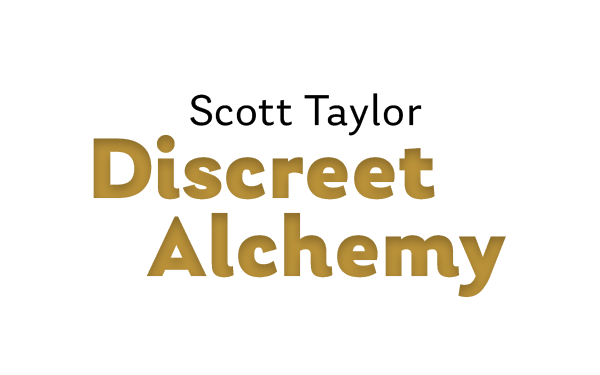
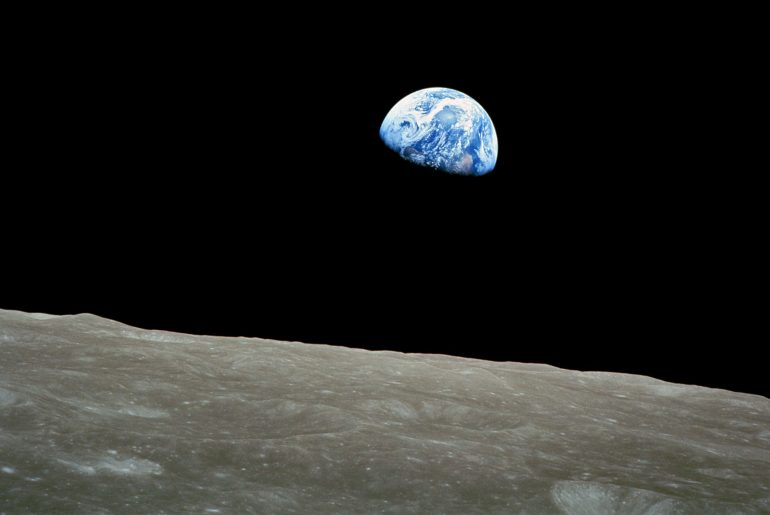
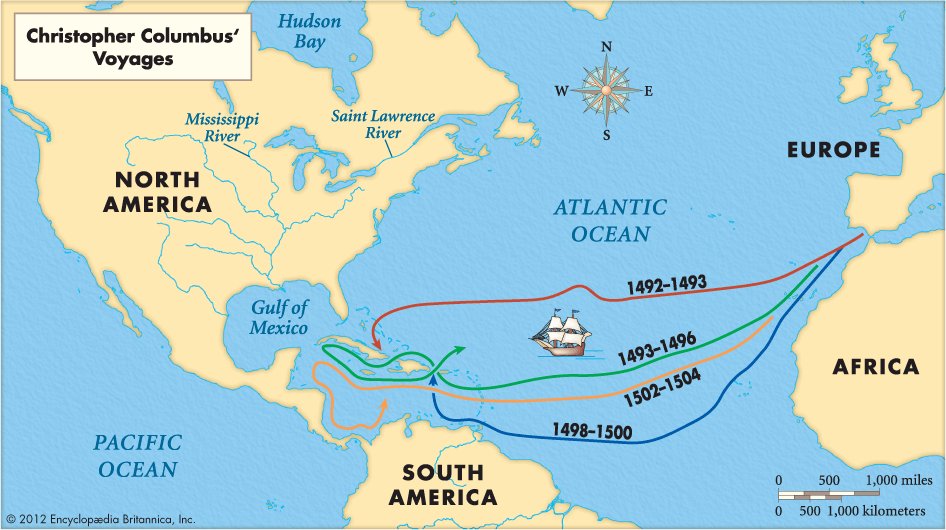
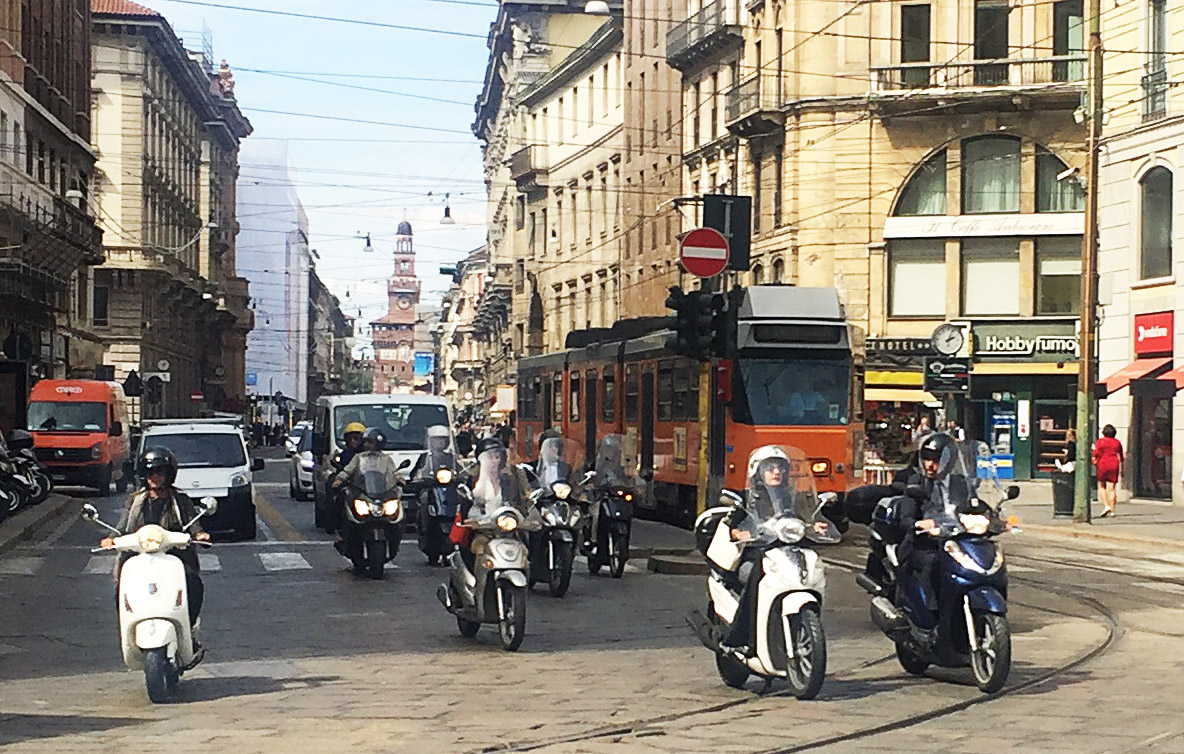
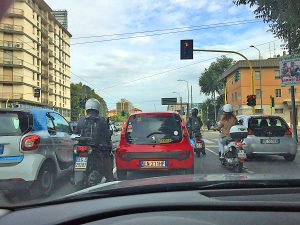
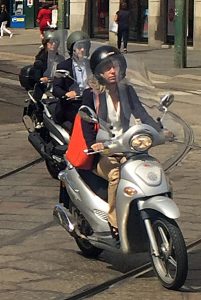 With all the opportunistic and creative lane-changers, the acrobatic scooterists, some incredibly complicated intersections involving up to five streets, two train routes, and possibly a canal, you have to pay air-traffic-controller-like attention. Defensive driving taken to a new level is necessary here. You must be present, very present grasshopper. Set your mirrors carefully. Assume that there’s someone in your blind spot.
With all the opportunistic and creative lane-changers, the acrobatic scooterists, some incredibly complicated intersections involving up to five streets, two train routes, and possibly a canal, you have to pay air-traffic-controller-like attention. Defensive driving taken to a new level is necessary here. You must be present, very present grasshopper. Set your mirrors carefully. Assume that there’s someone in your blind spot.
 If you find yourself on one of the streets, you have to nose your car out when there’s a gap in the traffic coming the other direction, and then hope your confidence springs a gap so you can make your left turn. I try to let one of these cars through when I’m able to do so. Despite my appreciation of Buddhism, I do not believe in any sort of karma-magic. Personally though, I do feel better about inserting my way into traffic if I’ve been on the other side of the equation a number of times. Possibly, this is what karma is supposed to be about anyway. When you have time, and can put yourself in that person’s shoes, it’s an easy decision to make.
If you find yourself on one of the streets, you have to nose your car out when there’s a gap in the traffic coming the other direction, and then hope your confidence springs a gap so you can make your left turn. I try to let one of these cars through when I’m able to do so. Despite my appreciation of Buddhism, I do not believe in any sort of karma-magic. Personally though, I do feel better about inserting my way into traffic if I’ve been on the other side of the equation a number of times. Possibly, this is what karma is supposed to be about anyway. When you have time, and can put yourself in that person’s shoes, it’s an easy decision to make.

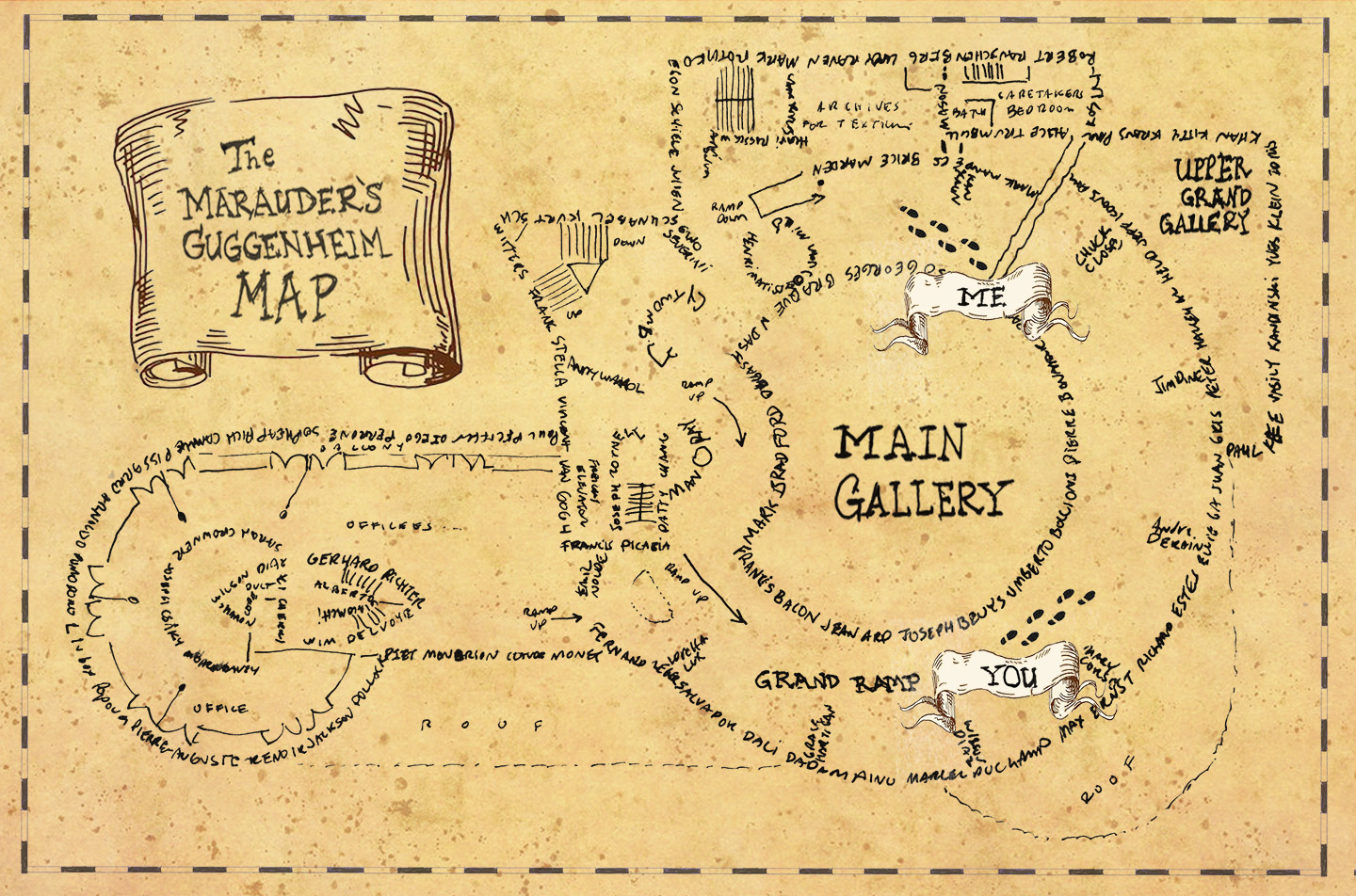
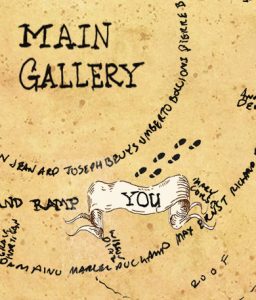 If we were to expand our range from “same place, same time,” to “same block, same hour,” then the chances must go up considerably. The odds that there could be someone we know with a block or an hour of us, would have to
If we were to expand our range from “same place, same time,” to “same block, same hour,” then the chances must go up considerably. The odds that there could be someone we know with a block or an hour of us, would have to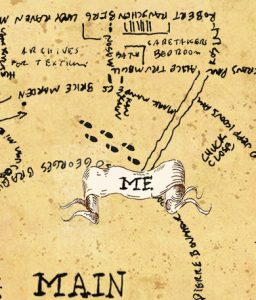 I was recently at the Linate airport in Milan, waiting to pick up my daughter. As I looked through the faces, ready to pick out hers, people coming through the gate started reminding me of friends and acquaintances—this person’s eyes, that person’s hair, the way that guy walked. One woman looked so much like a nanny the girls had a few years ago, I had to do a double take—it was not her but it absolutely could have been an older sister.
I was recently at the Linate airport in Milan, waiting to pick up my daughter. As I looked through the faces, ready to pick out hers, people coming through the gate started reminding me of friends and acquaintances—this person’s eyes, that person’s hair, the way that guy walked. One woman looked so much like a nanny the girls had a few years ago, I had to do a double take—it was not her but it absolutely could have been an older sister.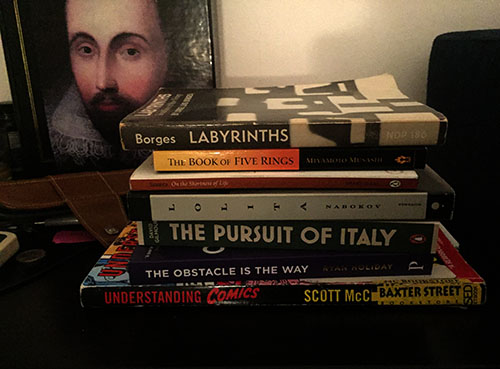
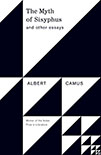 Books I’m reading
Books I’m reading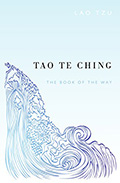 Books I’ve Read More than Once in the Past Year
Books I’ve Read More than Once in the Past Year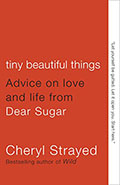 Recent Favorites
Recent Favorites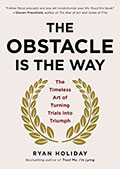 Recent Favorite Audio Books
Recent Favorite Audio Books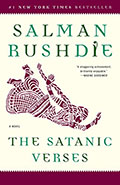 Books I need to reread
Books I need to reread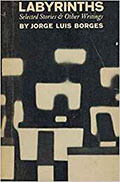 Books currently on my nightstand
Books currently on my nightstand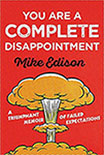 Last five books read
Last five books read Last five books read on kindle
Last five books read on kindle Last five poetry books I’ve read from
Last five poetry books I’ve read from Graphic Novels
Graphic Novels Books currently on our coffee table
Books currently on our coffee table The Next Five Books
The Next Five Books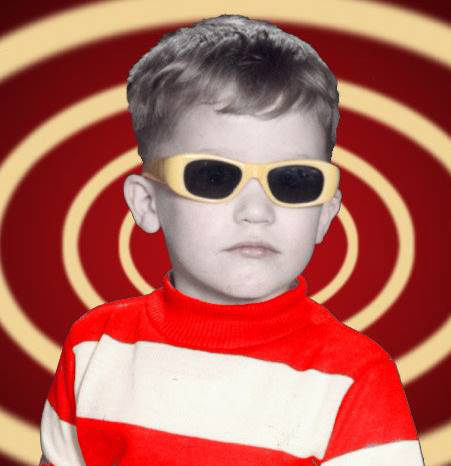
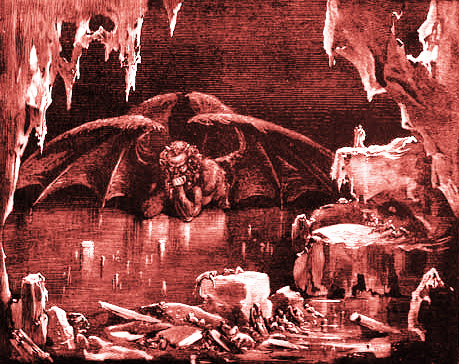

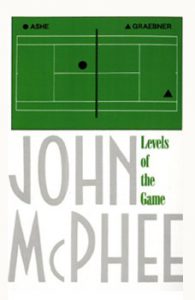 So I went questing to find books on Arthur Ashe. His
So I went questing to find books on Arthur Ashe. His 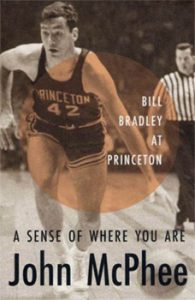 After finishing
After finishing 